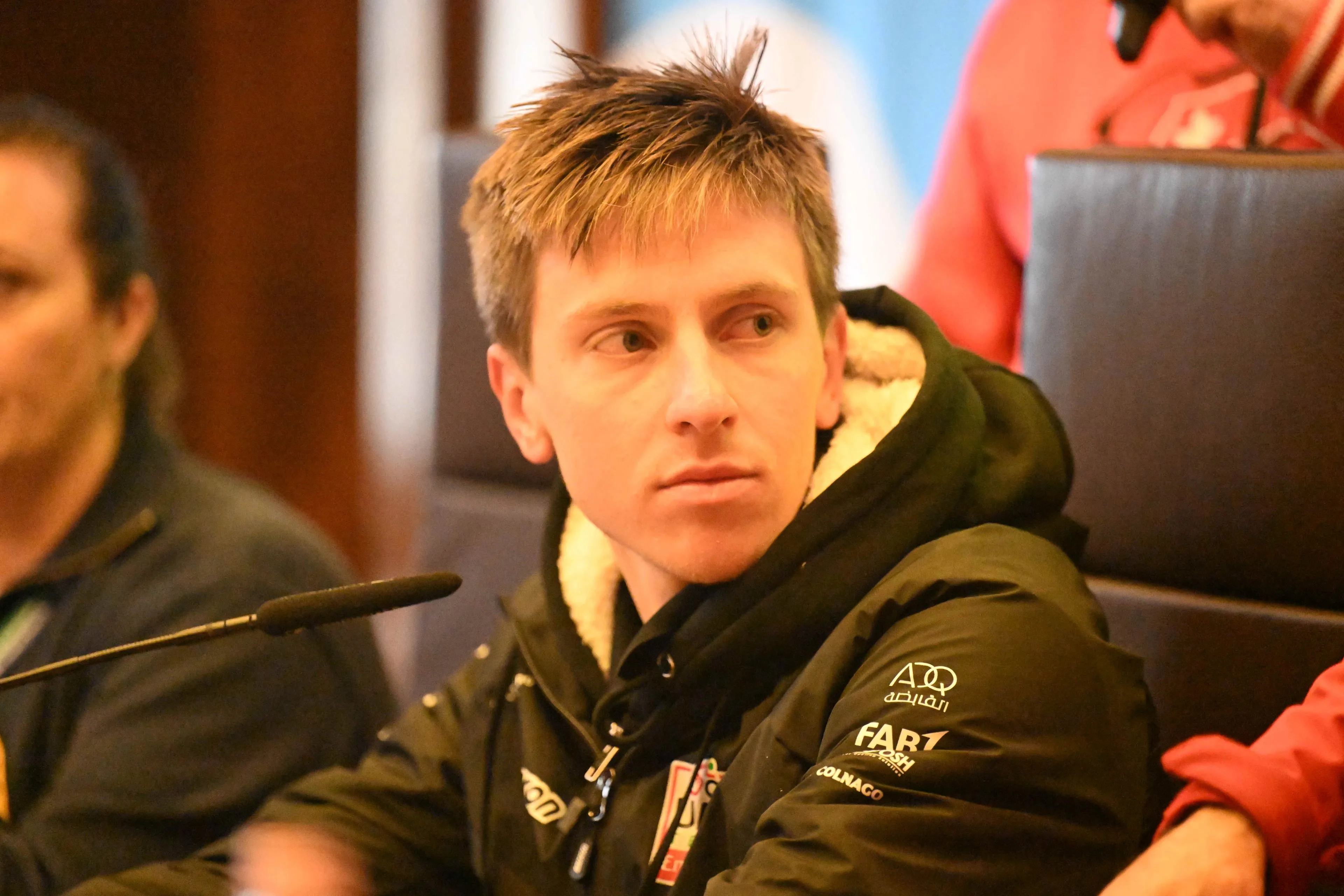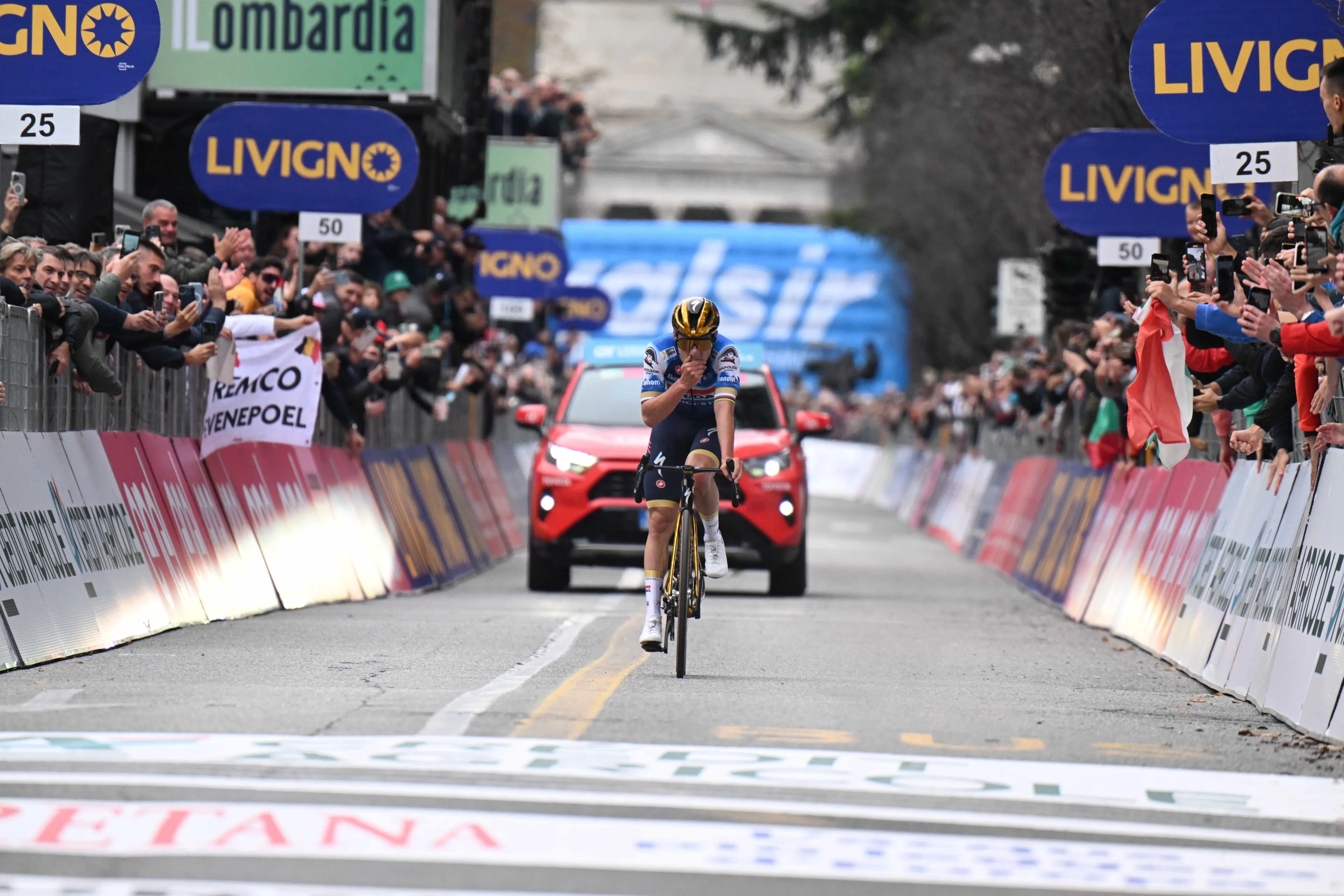INEOS Grenadiers: After years of dominance, suddenly the edge of the abyss seems near (without Pidcock?)
CyclingSunday, 13 October 2024 at 14:57
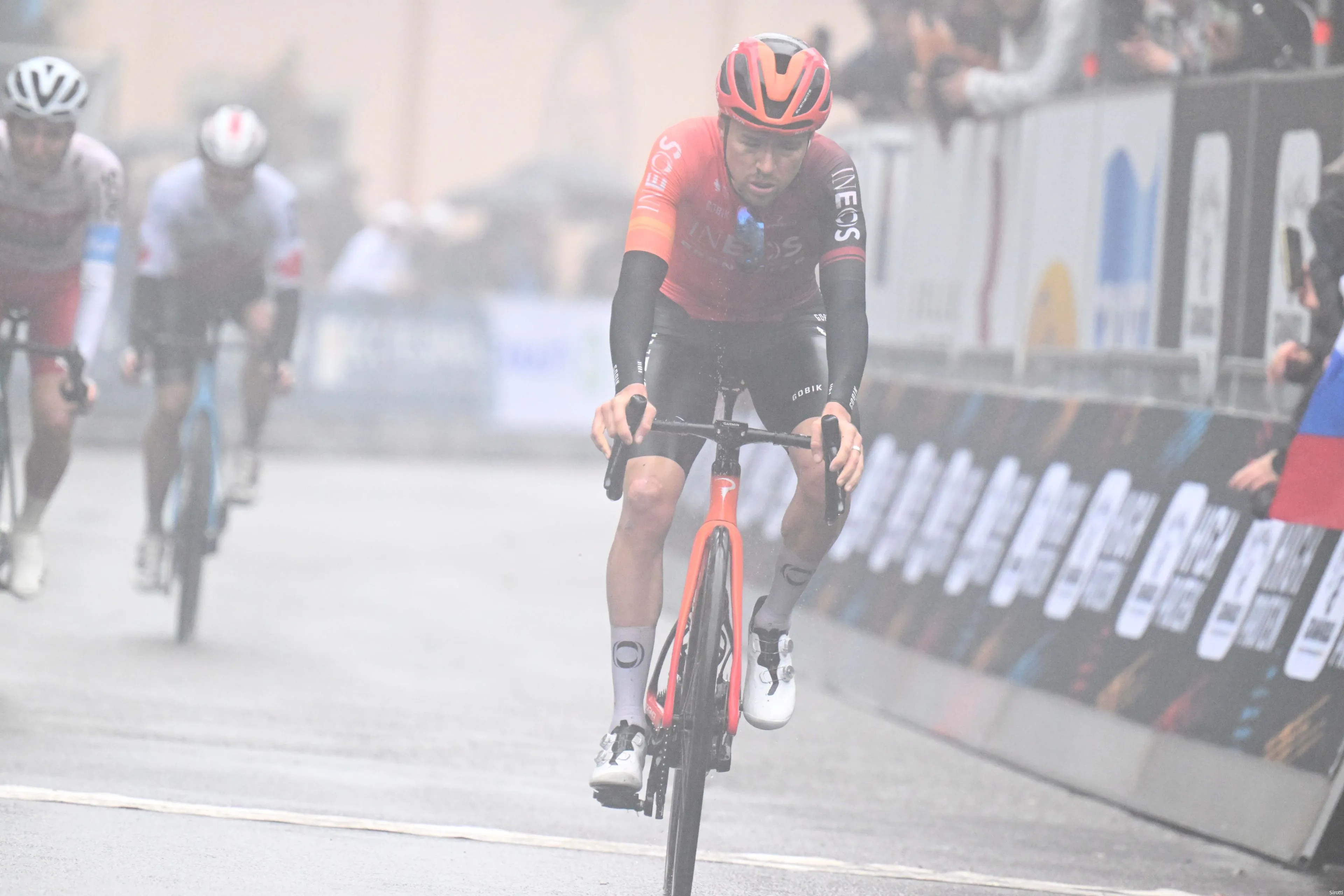
The budget isn’t the problem, but this year for INEOS Grenadiers can certainly be seen as a low point in the team’s history. The British squad failed to impress at every critical moment, and looking ahead to next year, things seem only to be getting worse. The team is gradually losing key riders, and the new signings don’t seem to compensate for the departure of big names. This, from a team that was once the one to beat...
In February 2009, the announcement of a major British cycling team was made. With the growing emergence of British riders, the goal was to create a top-tier team. The team received a WorldTour license in 2010, starting with established names like Juan Antonio Flecha and Simon Gerrans, and promising talents like Geraint Thomas and Edvald Boasson Hagen. But the biggest name was Bradley Wiggins: the track specialist had placed fourth in the Tour de France the previous year, the best British performance since Robert Millar (now Philippa York) in 1984. There was suddenly hope for a British Tour winner, and it had to happen on a British team.
While Sky Procycling faced some initial challenges, 2011 hinted at what was to come. Bradley Wiggins took third in the Vuelta a España, marking his first grand tour podium. But the rise of Chris Froome was the real story: the Kenyan-born rider outpaced his team leader in Spain and finished second behind the eventual winner, Juan José Cobo. When Cobo was later caught doping, the 2011 Vuelta became the British team’s first official grand tour victory.
Read more below the photo!
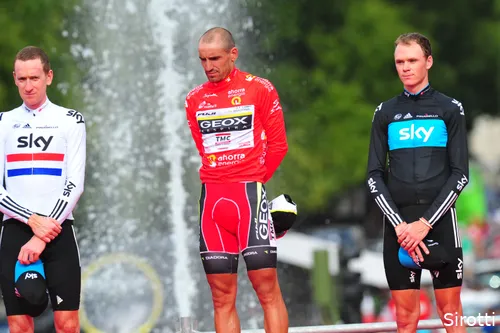
Chris Froome and Bradley Wiggins flank Juan José Cobo on the final podium of the 2011 Tour of Spain
British cycling dream realized: sky produces three Tour winners
In 2012, Sky continued building the British superteam they had envisioned. With newly crowned world champion Mark Cavendish, the biggest star in British cycling was brought on board. However, that partnership was not a resounding success, and they parted ways after a year. Still, the team finally achieved its long-desired goal: Wiggins won the Tour de France, with the help of a powerhouse team and an exceptionally strong Froome (who himself placed second). In addition, the team claimed six stage wins. This Tour de France marked the beginning of an era, with Sky’s dominance defining the years that followed. The now-famous 'Sky train' was born: the entire team controlled the race up to the finish, where the leader completed the job.
This superteam continued to shape the grand tours. Froome took over leadership from his old mentor and went on to win the Tour four times, the Vuelta twice and the Giro d'Italia once. Between 2012 and 2019, the team only failed to win the Tour once, in 2014, with Thomas winning in 2018. He was succeeded by Egan Bernal, who won the Giro two years later. The previous year (2020), Tao Geoghegan Hart took the Italian grand tour title in the COVID-19 season. Michal Kwiatkowski (Milan-San Remo in 2017), Wout Poels (Liège-Bastogne-Liège in 2016) and Dylan van Baarle (Paris-Roubaix in 2022) also each won a monument. It seemed there was no end to the British team's success.
However, that wasn’t to last. The team, which became Team INEOS and later INEOS Grenadiers, saw its performance stall. Since Bernal’s Giro victory, eleven Grand Tours have passed without an INEOS rider on the top step of the podium. There have been some podium finishes, sure, but those offered little hope. Richard Carapaz reached the podium twice, but he has since left the team. Thomas also finished on the podium in the last two editions of the Giro, but at 38, the Welshman won’t be relied on by INEOS much longer. In 2024, INEOS Grenadiers hit a new low: with only fourteen wins, they set a record low for victories in a single season.
Read more below the photo!
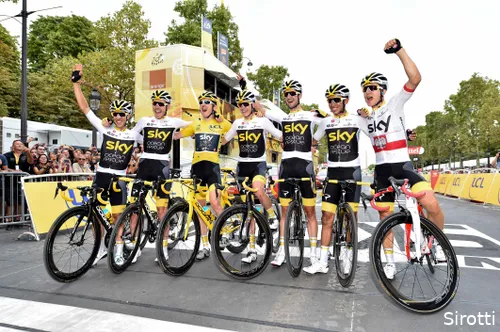
The super team Team Sky, with Geraint Thomas, Chris Froome and Egan Bernal: a grand total of six Tour wins
Departure of veterans Bigham and Rowe sign of things to come?
Why has the British superteam suddenly collapsed? The reasons are complex, but it all started with the 'departure' of Sir Dave Brailsford. From the beginning of Sky Procycling, Brailsford led the team, and under his guidance, they developed into the absolute top team of the peloton. In 2021, however, he received a promotion, becoming the manager of the entire sports division of Jim Ratcliffe's INEOS, which includes oversight of Manchester United, where his focus has increasingly shifted since January this year. Since Brailsford's departure, the team’s management has been in disarray. Rod Ellingworth took over but is already leaving, with Australian John Allert stepping in to replace him.
The problems at the top have trickled down. Staff and riders are feeling the consequences: there is no clear plan, no vision for the future. As a result, various veterans are seeking their fortunes elsewhere. First to go was time trial guru Dan Bigham, after disagreements. He was crucial to Filippo Ganna’s performances but will now bring his expertise to Red Bull-BORA-hansgrohe. Bigham was candid about what he saw as the team's issues, with Brailsford's departure being a central factor. "Dave always had a clear vision, a plan of action. That’s lacking now." His collaboration with the British team became increasingly strained, as they paid less and less attention to his personal goals.
Now, Luke Rowe has also left. The road captain spent his entire professional career with Team Sky and its successors, but as he retires from cycling, he is joining another team as a sports director: from now on, he’ll be in the car at Decathlon AG2R La Mondiale. "I’ll try to put this diplomatically. It’s hard to justify. It’s a team with an enormous budget. Riders are paid to win big races. That’s just not happening now. We’re not delivering." The 34-year-old rider later clarified that his departure had nothing to do with dissatisfaction, but the timing is notable.
Read more below the photo!
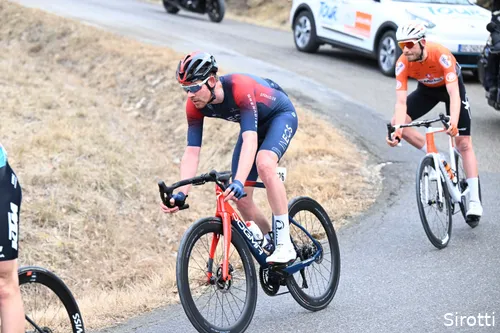
Who will step up as the new leader? Likely not Pidcock
The performances are stagnating, and the organization is in disarray: so what’s next for INEOS Grenadiers? The future remains uncertain. Thomas, one of the team leaders, is likely to retire next year. The team’s hopes for grand tours are now pinned on young riders knocking on the door. Carlos Rodríguez impressed last year in the Tour de France with a stage win and fifth place in Paris, but this year he dropped to seventh overall. The Vuelta also ended in disappointment, where he finished tenth. Thymen Arensman is at a similar stage in his career. After two sixth-place finishes in the 2023 and 2024 Giro d'Italia, he has yet to break into the very top tier.
With Ganna and the young 20-year-old Joshua Tarling, the team is solid in terms of time trials, but they are not the kind of frequent winners that will keep the team afloat. Tom Pidcock is perhaps the most well-known name in the squad, but with a grand total of five wins in four years, he has yet to make a major impact. When he wins, he wins big, but that frequency is lacking. Additionally, a possible transfer to Q36.5 Pro Cycling is a hot topic these days, and these rumors gained traction when he was not selected for the Giro di Lombardia, much to his dismay.
Read more below the photo!
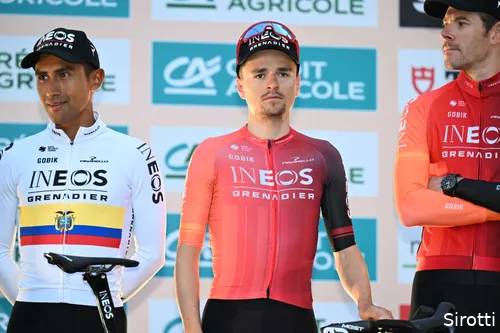
Jhonatan Nárvaez and Luke Rowe are leaving INEOS, but Tom Pidcock also appears to be on his way out
The future is promising, but perhaps too far off
Looking ahead, there is plenty of potential with young talents Andrew August, Michael Leonard, Artem Shmidt, Theodor Storm and Peter Øxenberg, all aged twenty or younger and with bright careers ahead. The hope is to find a successor to Froome, but it will likely be a while before they can compete with the very best. Patrick Lefevere recently stated that money played a massive role in the success of UAE Team Emirates, and for INEOS Grenadiers, budget shouldn’t be an issue: according to The Guardian, the team, with a budget of 50 million pounds per year, is one of the richest in the peloton. However, their success in the transfer market has been limited.
In addition to the young Øxenberg, INEOS Grenadiers has secured four new signings so far. These are not the high-profile names we’ve come to expect: while 2021 saw the arrivals of Daniel Felipe Martínez, Richie Porte, Adam Yates and Pidcock, the latest additions are Bob Jungels, Sam Watson, Victor Langellotti and Axel Laurance. Jungels will make a fine road captain, but he’s unlikely to fill major gaps. Laurence and Watson were brought in to cover for Ethan Hayter’s move to Soudal Quick-Step, while Victor Langellotti is relatively unknown to the general public. The Monegasque rider joins from Burgos-BH and is known as a decent climber, but he’s certainly not a world beater.
Add to this the threat of a potential Pidcock departure, along with Giro standout Jhonatan Narváez (who is moving to UAE Team Emirates), veteran Elia Viviani and Hayter leaving, and the outlook grows bleaker. The team is but a shadow of what it once was. What — or perhaps who — needs to change remains to be seen. For British cycling, and the sport as a whole, it’s crucial for INEOS Grenadiers to right the ship. The cycling world is eager for a challenger to Tadej Pogacar, and the British team theoretically has all the resources to mount a challenge. While there is plenty of young talent rising, it may arrive too late. INEOS demands a lot from all its sports projects. Should the results continue to falter...
Read also
IDL-productions
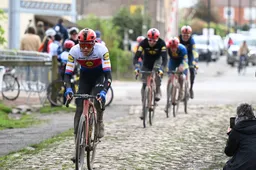
Last year, he was spot on: Lidl-Trek team leader De Jongh names his spring surprise for 2026
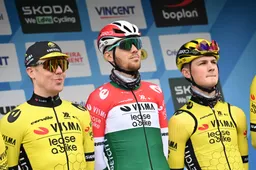
Attila Valter on why he left Visma | Lease a Bike: 'If it is what it is after three years, its not going to change'
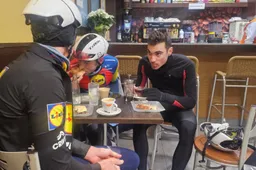
Still in black, but soon in colorful Lidl-Trek jersey: Juan Ayuso praises new environment
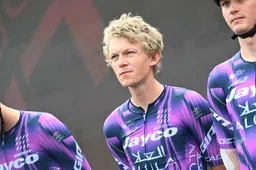
Bouwman not afraid to change at 32 after first disaster year outside of Visma: 'Have to be honest with myself'
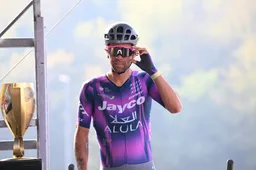
Sanremo, a world title and the yellow jersey: Michael Matthews escaped death - and that reignited his spark
Latest Cycling News
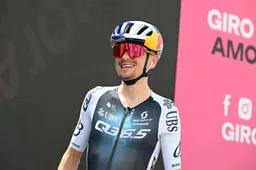
Why Tom Pidcock doesn't take his teammates to the Teide or Sierra Nevada, but at 2,700 meters in Chile
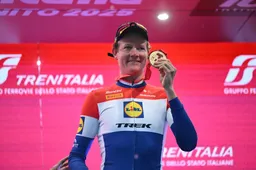
Hoole names difference between "beautiful leader" Mads Pedersen and Mathieu van der Poel
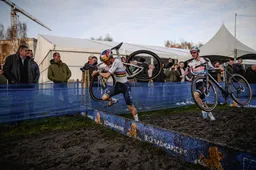
Pidcock keeps focus on road cycling, but cross country in 2026 is a possibility - albeit with a condition

🎥 Pogacar already focused on Milano–Sanremo: World Champion goes all-out on the Poggio
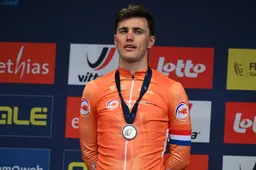
Tour chances of Kooij, role distribution and ambitions: sprint leader Mark Renshaw is delighted after introductions at Decathlon
Popular Cycling News

🎥 Pogacar already focused on Milano–Sanremo: World Champion goes all-out on the Poggio

If Vingegaard does the Giro, he’ll face a dangerous Red Bull duo: "Good Giro for a contract"
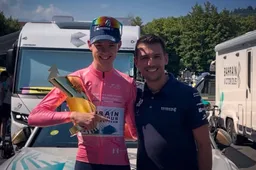
A winner in the Giro and Roubaix: are comparisons between Jakob Omrzel and Tadej Pogacar justified? 'More of a climber'
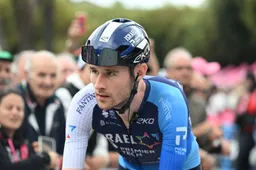
Finally an end to all rumours: Derek Gee has found a new team and signs contract through 2028
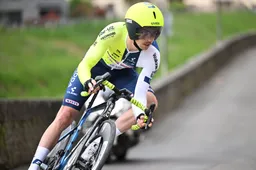
After Gee's transfer announcement, NSN Cycling Team presents two new reinforcements, including trusted Girmay-helper
Latest Comments
- Those events are mental rest for him. Fun, without expectations. *Sagan lost his abilities because he gained weight and got lazy. Pogi will likely retire before that has a chance at happening.Veganpotter14-12-2025
- Ah, the consequences of riding for Israel.Veganpotter11-12-2025
- Pidcock could follow everyone but Pogi while finishing 3rd. No second place rider this season😃Veganpotter16-11-2025
- Now the Palestinian protestors can stop their whining. Trump came to the rescue. So they can now STFU and go back to waving the rainbow flags.raufus15-10-2025
- Cracked the code lol. If it was that easy to 'crack the code' jonny Vegas would be charging up the Kwaremont giving Pog a dose of his medicine. Evenepoel can't match pog on a climb and neither can mvdp. Anything with a half difficult climb and Pog smashes the field. Even on flat(ish)parcours like Roubaix it came down to a mistake and crash by pog to definitively crown mvdp. MSR is the only one that Pog probably won't win.kevpt10-10-2025
- We've seen this movie before. I think Pogacar is doping.DeadBlow10-10-2025
- 👍Bea08-10-2025
- 👌🏻Bea08-10-2025
- What the data doesn't show is how much of an effect drafting had for evenepoel. Pogacar went with del toro at 100km whilst Evenepoel was still in the bunch. Despite the bike changes he still had a lot of assistance getting back to the bunch. Pogacar then rode 60km solo whilst evenepoel rode with Healy/Skjelmose until going solo in thd last 10-15km. Thats ~20% less power / energy requirements for 45-50km. Apples and oranges...kevpt30-09-2025
- 👏👏Bea24-09-2025
Loading
